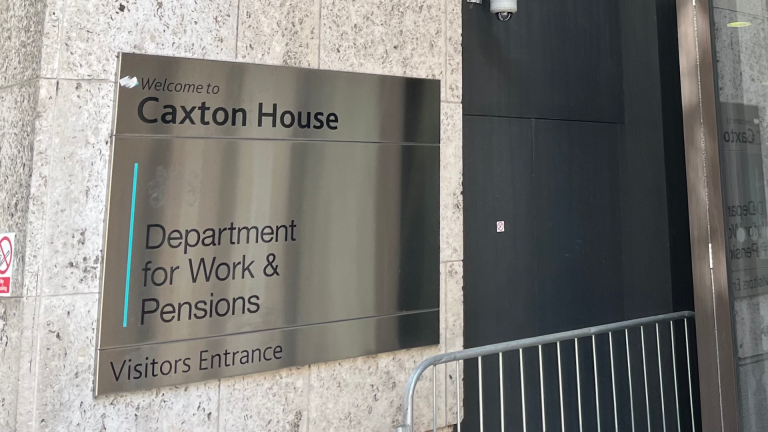“A plan that tackles the biggest drivers of unemployment and inactivity and gives young people their future back through real, meaningful change instead of empty rhetoric and sticking plaster politics.”
The Jobcentre system will be transformed into a new national jobs and careers service, which the DWP claims will be focused on people’s skills and careers instead of monitoring and managing benefit claims.
Mayors and councils will be empowered to join up local work, health and skills support in ways that meet the specific needs of their local areas. There will also be a new ‘youth guarantee’ to help every young person access education and training, backed by £40m to expand opportunities for youngsters.
Tom Pollard, head of social policy at the New Economics Foundation, said: “It feels like they’re trying to shift away from a tick-box culture in Jobcentres, trying to focus more on offering genuine support and focusing on the quality of work, rather than just getting people into any job. Alongside that, the moves to devolve support down to local areas and try to join up support around health, work and skills, all of that is really welcome.
“It will be a struggle to turn that culture around. We’ve had 15 years, if not more, of running things in a certain way that’s very procedural and very tick-boxy, and there has been a lot of emphasis on people meeting strict, prescriptive requirements. I think a shift away will be difficult to achieve, but the ambition is welcome.”
However, it comes after the prime minister pledged to cut a “bulging benefits bill” which he claimed is “blighting our society” in an article in the Mail on Sunday. The newspaper said Starmer was “declaring war on the benefits system”. Work and pensions secretary Liz Kendall also said people are at risk of losing their benefits if they do not seek support.
Advertising helps fund Big Issue’s mission to end poverty
Rhetoric such as this could “deepen stigma”, charities warned, meaning people who genuinely need support from the DWP are less likely to seek help – it could mean people disengage from Jobcentres.
“It’s a shame that there still seems to be this pressure to talk tough and to focus on what happens when people don’t engage,” Pollard said. “They need to be aware that rhetoric around cracking down on people undermines efforts to engage with people. If you want people to see the service as something different, and you want them to see it as a genuine offer of support, it doesn’t help if what they’re hearing is threats.”
Catherine Parsons, who oversees Big Issue’s specialist employability service Big Issue Recruit, agreed, saying: “Government scare tactics will only exacerbate Britain’s work crisis, not solve it. We know that the steep rise in anxiety and mental health problems in young people has had a direct impact on their ability to find and retain good jobs.
“The new looming threat of having their benefits axed should they fail to summon the mental strength to accept work or training will only continue the vicious cycle of failure that has seen economic inactivity and the welfare bill spiralling out of control in recent years. Until the government invests in ethical, empathetic, end-to-end employment support like Big Issue Recruit, any attempt to ‘get Britain working’ won’t work.”
Although the government appeared to show a tough stance in the run-up to the white paper, the details revealed by the DWP show more compassion. Starmer promised to “put an end to the culture of blaming and shaming people who for too long haven’t been getting the support they need to get back to work”.
“Helping people into decent, well-paid jobs and giving our children and young people the best start in life – that’s our plan to put more money in people’s pockets, unlock growth and make people better off,” the prime minister said.
Advertising helps fund Big Issue’s mission to end poverty
Ross Barrett, policy manager at the MS Society, said she was “encouraged” by DWP plans, welcoming the move to restore the Jobcentre’s role as a supportive employment service, and the commitment to a review into what more employers can do to improve the recruitment and retention of disabled employees.
“We’re also glad to see the government is looking at how NHS services can be improved to support people with work. For these proposals to work in practice though, it’s vitally important the government involves disabled people directly in developing these positive changes,” Barrett said.
However, there remain question marks over the DWP’s plan for the benefits system. It has pledged to cut the welfare bill, with a target to slash £3bn from disability benefits, although it is unclear how it will do this.
Pollard said: “A lot of the challenges people are facing around health problems and also, more widely, around poverty, comes down to the fact that aspects of the benefit system are still completely inadequate. It feels like in the conversation around what’s going to help people get back on their feet and get back to work, we’re often reluctant to talk about the importance of money and adequacy of income.
“The conventional wisdom is to keep benefits as low as possible because that incentivises people into work. If you’re kind of scrabbling day to day to make ends meet, my experience of working with people in that situation is that it makes it very hard to think about the future and moving forward. I’d like to see a bit of a more grown-up discussion around the importance of people having enough to make ends meet. At the moment, that’s not really on the table.”
Poverty has a direct impact on people’s health, and the threat of losing benefits can be damaging for people’s mental and physical health. The Big Issue previously spoke to a woman who had a stroke days after losing her disability benefits from the DWP.
Advertising helps fund Big Issue’s mission to end poverty
Richard Kramer, chief executive at the national disability charity Sense, said: “It’s welcome to see this focused approach from government to support disabled jobseekers into employment, particularly young people and those with complex disabilities who are likely to need more tailored and specialised support.
“However, disabled people must not be left in fear that their benefits will be cut if they turn down job offers or training courses that don’t meet their needs. There is a lot that will need to be done to rebuild trust with disabled people and to work in partnership with local experts to really deliver this change. It is also vital to remember that not every disabled person is able to work and no-one ever should be pressured into taking a job at the expense of their health.”
The government inherited plans from the Conservatives to reform the work capability assessment, which would have seen hundreds of thousands of people miss out on support over the next five years. DWP plans are due to come into place next year and, while Labour has said it will take its own approach to social security, it has also promised to honour the savings laid out by the Conservatives.
Ben Harrison, director of the Work Foundation at Lancaster University said: “The success of these measures will depend on wider changes to the benefits system to de-risk the journey back to employment.
“The government must ensure those with long-term health issues are not inadvertently pushed into insecure and low-quality work which may only serve to worsen their condition in the long run. And it is critical that those with health conditions do not face the risk of losing their welfare entitlements should they attempt to return to the labour market and yet are unable to sustain work over the medium to long-term.
“Equally, these reforms provide an opportunity to ensure that those in receipt of universal credit are supported to prioritise training and skills development opportunities that could help them enter more secure and sustained employment in the future.”
Advertising helps fund Big Issue’s mission to end poverty
Do you have a story to tell or opinions to share about this? Get in touch and tell us more. This Christmas, you can make a lasting change on a vendor’s life. Buy a magazine from your local vendor in the street every week. If you can’t reach them, buy a Vendor Support Kit.










